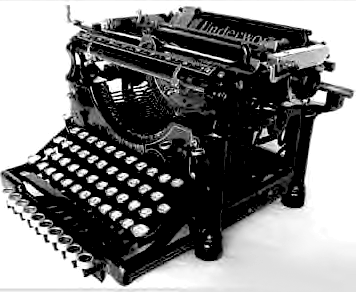English 202 Fall 2004 - Research Writing |
|||
|
Scope and Breadth (When have I found enough)? The working bibliography should reflect a number (12+)
of sources you anticipate finding useful and relevant in the exploration
of your research question. Usually a broad variety of sources
reflects good research (balance of books, articles, websites, other; mix
of academic, popular, etc.). When you have a good number of sources, it
can be useful to step back and survey the TYPES. If you have only
personal websites, for instance, you may want to continue searching for
government, educational, or commercial resources to counter them. What distinguishes types of sources? - Note also that the type of source can be independent of the means of access: a dating education film from the 1950s found through www.archive.org is not just another web page--but a motion picture. Different types will give provide you with varied kinds of information and perspectives, so variety is crucial. Nuts and Bolts I suggest composing the bibliography in MSWord and saving to your H:Drive. Also post a version to your Blog as you progress. This MLA Format Guide or my MLA overview may be useful. Search Means (reminders) Use the IUP Library Catalogue (Pilot) for book and and Databases for journal searching. What if IUP/Pilot doesn't have a book? - Books not held at IUP can be searched through Firstsearch/Worldcat, which allows you to dip into thousands of catalogues across the world.Books unavailable at IUP can be quickly requested through PALCI; just provide your student number. (ILL may also be used for articles or books but tends to take longer.) How do I find journal articles? - Electronic databases grow weekly in the number of academic and popular journals they carry. When you uncover a possible journal search without full text, use Pilot (select search/journal title option) to find the journal/article in another database. Sometime when a database cannot provide you with full text, it may be available in another database to which IUP subscribes. Pilot will provide a link to the journal in the IUP database; or, if we subscribe to the print version, it will direct you to back issues in our library stacks. What if I can't find the article or journal itself in any databases? - If the article looks useful, get help finding the journal. Also, be aware that many good journal articles are not available electronically; be prepared to look for back issues on the shelves or microfilm. Finally, ILL can be used to request a photocopy of an article from an obscure journal, though you should note such requests will take 10-14 days to fill.)
Search Trouble Please consult with me or a research librarian if you find your searching is not paying off. We may need to vary search terms, change the databases you're looking in, broaden your criteria, etc. "Academic Search Premiere" is just one database. Look down the list to see what narrow databases might fit your interests. The most useful sources are not always those that directly overlap with your focus. If you are researching Gender Issues involving women in traditionally male sports, you may find that an essay on cheerleading or a book written by a female university coach adds something invaluable (even if doesn't seem directly on topic). Perhaps the data presented in an empirical study you encounter can be analyzed in a way that helps you answer your own questions, even if these aren't those the original researched looked into. Be creative. Revisit your conversations brainstorming or my guide to conversations to inspire varied searching. Primary Research Everything you find online or in the library might be classified as secondary material. You will also conduct some form of primary research or fieldwork. Once we've compiled a working bibliography, we'll return to this issue. As you search and compile resources, you may want to think about what's being left out: this may provide you with a purpose for your own primary research (observation, interview, survey, etc.)
|
|||
|
|||
